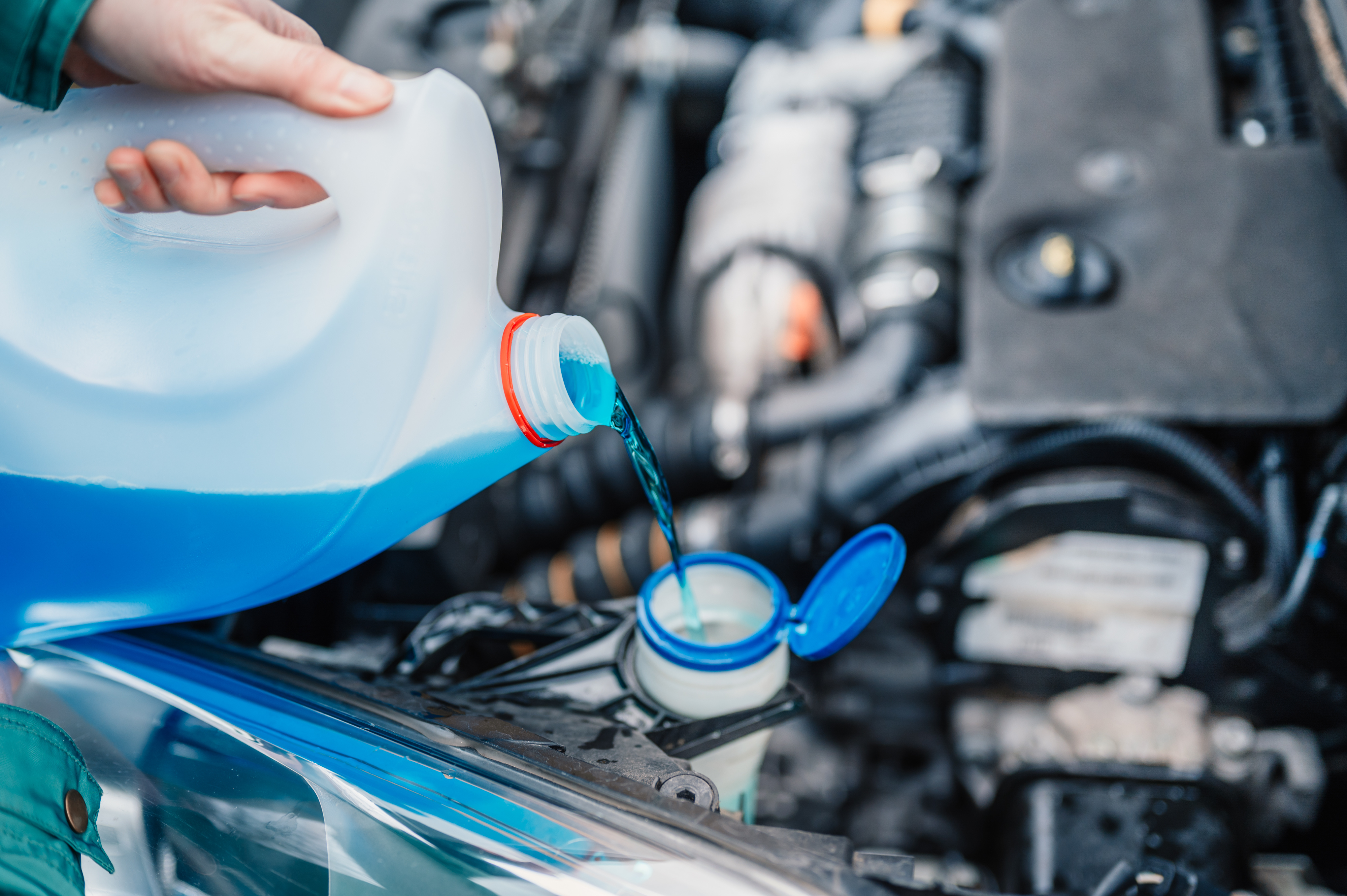What is Screenwash & Are There Different Types?
Published on: Monday, 13 March 2023 | Author: Jack Dreyer
This is a common curiosity question. Windscreen wiper fluid is one of those surprising things that failing to account for could fail an MOT! This is because having a means to clean the windscreen while driving is crucial for maintaining visibility – and therefore road safety.
But what exactly is screenwash made from, and does that mean there are different types?
Let’s find out.
Screenwash contains blends of surfactants & alcohols
The main ingredients in windscreen wiper fluid are surfactants, which are chemical mixtures or solutions that exist to break grease down, and alcohols, usually isopropyl – to further help degreasing but to also help stop the fluid from freezing in cold weather.
Both of these are crucial because what builds up on a windscreen isn’t just rain: it’s the grease of whatever’s kicked up from roads (such as engine & gearbox oils), sap from trees, bird excrement, or even fresh tar droplets kicked up by tyres.
If you’ve ever tried washing oil off your hands with just water, you’ll understand why the degreasing properties are so important! Imagine a careless driver throws a milkshake out of a window on a motorway, it lands on your bonnet and sprays all over the windscreen. Without being able to quickly remove the liquid from your windscreen, you have to drive with practically zero visibility – which, you’ll likely realise, is not only very difficult but very dangerous.
The different types of screen wash

Most people don’t pay this much mind, but there actually are different types of screenwash. Other than the different brands, the main differences are in the blends of agents. This is to account for environmental differences in different seasons. The anti-freezing agents that are added to the screen wash don’t necessarily make it unable to freeze, they just lower the freezing point – so it needs to be colder before the liquid will freeze solid.
A freezing point of -5°C may be completely adequate for most of the year, then, but you may need to account for lower temperatures in a particularly cold spell of winter.
Likewise, you don’t need to factor in cold weather during the warmer spring and summer months, but you do need to account for the far greater amount of airborne sap, pollen, and insects. So windscreen wiper fluid designed for summertime use will usually have more degreasing agents.
Having an issue with your screen wash?
If you’re having trouble with your windscreen wiper fluid, there could be a blockage or break in the system – get in touch with your local Tyre Pros centre to book an assessment & repair.




